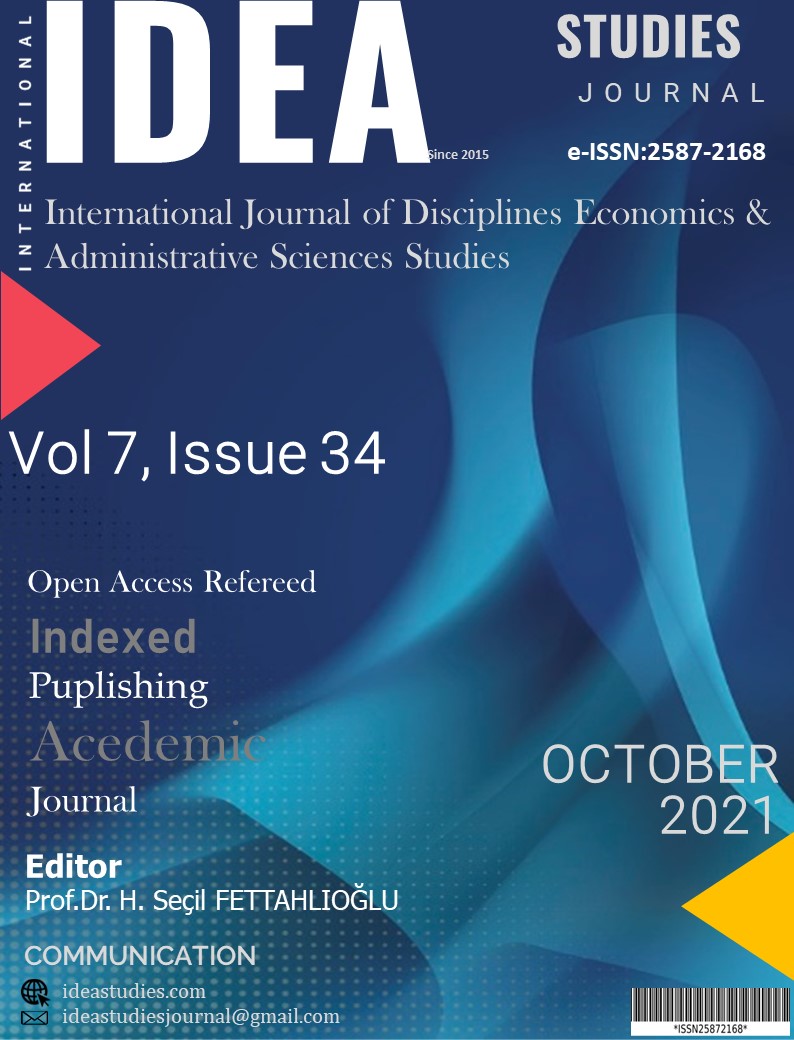Author :
Abstract
2020 yılının başlarında dünyayı etkisi altına alan salgın, yıllardır devam eden istikrarsızlık ve yoksullukla mücadele eden Afganistan’ı ciddi derecede olumsuz etkilemiştir. Kızamık, çocuk felci ve tüberküloz gibi hastalıklardan kurtulamayan Afganistan, yeterli sağlık altyapısına sahip olmadığı bir dönemde yeni bir virüs ile karşı karşıya kalmıştır. Ülkede sağlık hizmet kapasitesinin son derece zayıf olması dolayısıyla, gerçek vaka ve ölüm sayısının resmi istatistiklerin çok üzerinde olduğu kabul edilmektedir. Ülkede vaka sayısının düşük olması sağlık sisteminin kapasitesi ile doğrudan alakalıdır. İç savaş, beslenme sorunu, işsizlik, yoksulluk ve tıbbi yetersizliklerle karşı karşıya kalan Afganistan, Mayıs ayında Covid-19 vakalarının artması ile yetersiz derecede olan sağlık sistemi tamamen çökmüştür. Salgın ile mücadelede, toplum katılımının düşük olmasının yanı sıra, sağlık personel ve sağlık ekipman yetersizliği Afganistan’ın karşı karşıya kaldığı en önemli zorluklardandır. Bununla birlikte, bazı bölgelerde sağlık tesislerinde kontrol önlemleri dahil olmak üzere sosyal mesafe kurallarına, kısıtlamalara ve sağlık tavsiyelerine düşük düzeyde uyma ve kırsal bölgelerde halkın sağlık hizmetlerine sınırlı erişimi, Covid-19 ile mücadeleyi daha da zorlaştırmıştır. Öte yandan salgınla mücadelede uluslararası toplumun Afganistan’a sağladığı mali destek yolsuzluk nedeniyle kullanılamamıştır. Bu çalışmanın amacı; salgınının iç çatışma yaşayan Afganistan’da yarattığı tahribatı ortaya çıkarmak, salgın ile mücadeledeki eksiklikleri ve zorlukları ele almaktır.
Keywords
Abstract
The epidemic, which affected the world at the beginning of 2020, seriously affected Afghanistan, which has been struggling with instability and poverty for years. Afghanistan, which could not get rid of diseases such as measles, polio and tuberculosis, faced a new virus at a time when it did not have sufficient health infrastructure. Due to the extremely weak health service capacity in the country, it is accepted that the actual number of cases and deaths is well above the official statistics. The low number of cases in the country is directly related to the capacity of the health system. Afghanistan's health system, which has been struggling with problems such as civil war, malnutrition and medical insufficiency, completely collapsed in May with the increase in Covid-19 cases. In the fight against the epidemic, in addition to the low community participation, the shortage of health personnel and health equipment is one of the most important challenges facing Afghanistan. However, insufficient infection prevention and low adherence to social distancing, restrictions and health advice, including control measures in health facilities in some areas, and limited public access to healthcare in rural areas have made the fight against Covid-19 even more difficult. On the other hand, the financial support provided by the international community to Afghanistan in the fight against the epidemic could not be used due to corruption. The aim of this study; The aim is to reveal the destruction caused by the epidemic in Afghanistan, which is experiencing internal conflict, and to address the deficiencies and difficulties in the fight against the epidemic.
Keywords
- 8subh. (2021). World Health Organization: Protect staff and health facilities in Afghanistan.
- 8subh. (2021). World Health Organization: Protect staff and health facilities in Afghanistan.https://8am.af/world-health-organization-protect-staff-and-health-facilities-in-afghanistan/(Erişim Tarihi: 21.09.2021).
- Adili, G. (2021).The cost of treating coronary patients in public hospitals is twice as high as in privatehospitals.https://pajhwok.com/fa/2021/07/29/the-cost-of-treating-coronary-patients-in-public-hospitals-is- twice-as-high-as-in-private-hospitals/(Erişim Tarihi: 22.09.2021).
- Ajand, F. (2021). Implementing a new round of restrictions on the expansion of the corona in Afghanistan. https://www.independentpersian.com/ (Erişim Tarihi: 24.09.2021).
- Azadiradio. (2021). Registration of 15 cases of black fungus in Afghanistan; What are the symptoms of this disease?.https://da.azadiradio.com/a/31365679.html(Erişim Tarihi: 25.09.2021).
- BBC Farsça. (18 Kasım 2020). Announcing the beginning of the second wave; Corona test was mandatory to enter Afghanistan. https://www.bbc.com/persian/afghanistan-54984408(Erişim Tarihi: 26.09.2021).
- BBC Farsça. (21 Kasım 2020). The second wave of the corona in Afghanistan; Universities Were Closed For Three Months. https://www.bbc.com/persian/afghanistan-55027632(Erişim Tarihi: 27.09.2021).
- BBC Farsça. (29 Mayıs 2021). Corona in Afghanistan; 'Alarm bells rang', schools and universities closed in 16 provinces. https://www.bbc.com/persian/afghanistan-57281473(Erişim Tarihi: 21.09.2021).
- BBC Farsça. (Şubat 2021). Corona vaccination has begun in Afghanistan. https://www.bbc.com/persian/afghanistan-56165443(Erişim Tarihi: 30.09.2021).
- BM (Temmuz 2021). Proteciton of civilians in armed conflict midyear Update;1 January to 30 June2021.https://unama.unmissions.org/sites/default/files/unama_poc_midyear_report_2021_26_july.pdf (Erişim Tarihi: 24.09.2021).
- BM. (2021). Afghanistan: World must act on ‘make or break moment’ – UN chief. https://news.un.org/en/story/2021/10/1102722 (Erişim Tarihi: 02.10.2021).
- Çetiner, M., & Şahin S. (2021). Pandemi Sürecinde Türkiye ve Dünya Ekonomisindeki Gelişmeler.International Journal of Disciplines Economics & Administrative Sciences Studies(IDEA STUDIES), 7(25), 52-60.
- DSÖ.(22 Eylül 2021). Acute health needs in Afghanistan must be urgently addressed and health gainsprotected. https://www.who.int/news/item/22-09-2021-acute-health-needs-in-afghanistan-must-be-urgently- addressed-and-health-gains-protected(Erişim Tarihi: 04.10.2021).
- Dünya Bankası. (2021). Fighting Covid-19 Poverty in Afghanistan. https://blogs.worldbank.org/prs/endpovertyinsouthasia/mbarzh-ba-fqr-nashy-az-kwwyd-19-dr-
- afghanstan(Erişim Tarihi: 05.10.2021).
- DW. (2021). Fear of the spread of the Corona virus forced the Taliban to work with health workers.https://www.dw.com/fa(Erişim Tarihi: 06.10.2021).
- Humanium. (2021). Children of Afghanistan. https://www.humanium.org/en/afghanistan/(Erişim Tarihi: 10.10.2021).
- Jalil, R. (2021). The process of applying the corona vaccine in Afghanistan resumed with the arrival of thevaccine from China. https://www.etilaatroz.com/125998/covid19-vaccination-resumed-in- afghanistan/(Erişim Tarihi: 09.10.2021).
- Naw Andish, İ.(2021). Research report; How was the preparation process for the Corona program?. https://www.etilaatroz.com/129493/research-report-how-has-preparation-process-for-corona-program-
- been/(Erişim Tarihi: 12.10.2021).
- Nuri, F. (2021). 10 Million People Are likely to be İnfected With Corona İn Afghanistan. https://www.independentpersian.com(Erişim Tarihi: 13.10.2021).
- Payman, W. (2019). There is no preparation for the fight against Corona inAfghanistan.https://8am.af/there-is-no-preparation-needed-to-fight-corona-in-afghanistan/(Erişim Tarihi:Payman, W. (2021). Why is the process of getting Covid-19 and the resulting deaths in Afghanistan slow?. https://8am.af/is-the-trend-in-quaid-19-and-its-deaths-in-afghanistan-slow/ (Erişim Tarihi: 13.10.2021).
- Suhbhekabul. (2021). New $ 132 million in World Bank assistance to fight the corona in Afghanistanhttps://subhekabul.com/%D8%AE%D8%A8%D8%B1%D9%87%D8%A7/afghanistan-covid19-worldbank- aid/(Erişim Tarihi: 14.10.2021).
- Şahi, M. (5 Haziran 2020). New challenge for Afghan doctors with Corona: "Mullah Imam's words are morevalid than doctors' diagnoses. https://per.euronews.com/2020/05/17/afghan-doctors-new-challenge-with- coronavirus-exclusive-report(Erişim Tarihi: 15.10.2021).
- Tolonews. (29 Mayıs 2021). Schools And Universities Closed in 16 Provinces With The Spread of The Third Wave Of The Corona. https://tolonews.com/fa/afghanistan-172462(Erişim Tarihi: 8.10.2021).
- UNAMA. (6 Ekim 2021). UN And Humanitatiran Partners Scale Up Life-Saving Response To Crisis İnAfganistan And Call On All Donors To Urgently Turn Pledges İnto Reality.https://unama.unmissions.org/un-and-humanitarian-partners-scale-life-saving-response-crisis-afghanistan- and-call-all-donors(Erişim Tarihi: 16.10.2021).
- UNDP. (2021). Pandemic threatens Afghanistan’s health system, economy, and peace process, UNDP studyfinds. https://www.undp.org/press-releases/pandemic-threatens-afghanistans-health-system-economy-and- peace-process-undp-study(Erişim Tarihi: 16.10.2021).
- VOA. (2021). The United States has frozen $ 9.5 billion in assets of the Central Bank of Afghanistanhttps://ir.voanews.com/a/persiannewsamerica_us-freezes-asset/6130794.html(Erişim Tarihi: 17.10.2021).





